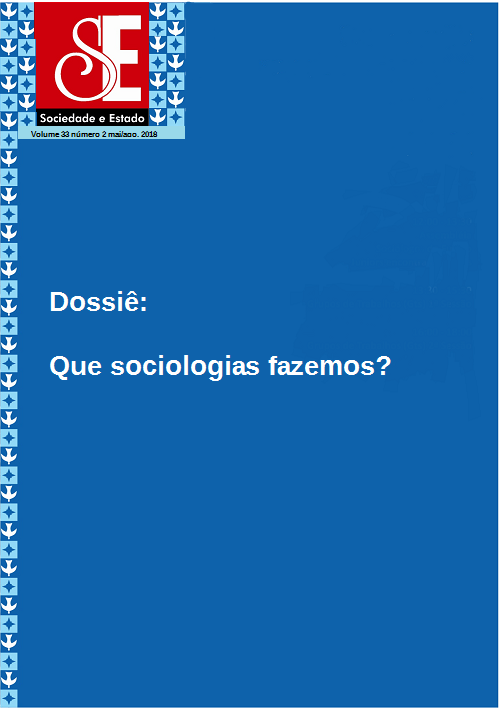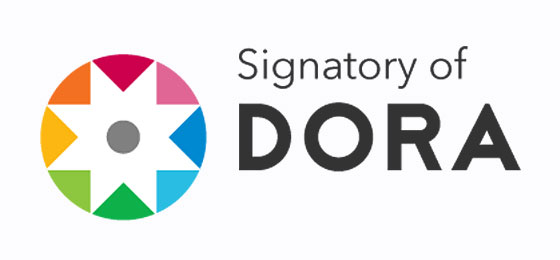The theory of new individualism
DOI:
https://doi.org/10.1590/s0102-699220183302009Keywords:
New individualism, Reflexive individualization, Self technologies, Global transformationsAbstract
In this paper I seek to accomplish two main objectives. Firstly, to review and reiterate the theory of a ‘new individualism’ which I have detailed in recent writings in social theory. My argument is that we witness today the conditions and consequences of a new individualism sweeping the globe, especially evident in the new economy of high finance, media and technology industries. I then want to ask how the theory of new individualism differs from other influential standpoints in recent social theory. For my purposes in this chapter, the conceptual points of comparison with the theory of new individualism will be (a) the theory of ‘technologies of the self’ as elaborated by Michel Foucault and various neo-Foucauldians; and (b) the notion of ‘reflexive individualization’ outlined by Anthony Giddens. Secondly, I will discuss the wider sociological ramifications of the new individualist thesis. New individualism, I shall argue, is not merely about individuals or their psychological dispositions; rather it penetrates to the very core of core of culture and institutional life. New individualism is thus a kind of shorthand for the variety of modalities shaping, and shaped by, global social transformations. The key institutional drivers of new individualism which I shall elaborate are (a) continual reinvention, (b) instant change, (c) speed and (d) short-termism or episodicity. I conclude the chapter with a consideration of the likely future sociological consequences of live lived in the new individualist fast lane.
Downloads
References
BAUMAN, Z. Liquid Life. Cambridge (UK): Polity Press, 2005.
BECK, U.; GIDDENS, A.; LASH, S. Reflexive modernization. Cambridge (UK): Polity Press, 1994.
DELILLO, D. Underworld. London: Picador, 1998.
THE ECONOMIST. Reshaping Cisco: the world according to Chambers. The Economist, 27 Aug. 2009.
ELLIOTT, A. Reinvention. London: Routledge, 2013.
---- . The new individualism after the great global clash. The Journal of Studies in Contemporary Sociological Theory, v. 4, p. 55-66, 2010.
---- . Contemporary social theory: an introduction. London: Routledge, 2009.
---- . Making the cut: how cosmetic surgery is transforming our lives. Chicago (IL): University of Chicago Press, 2008.
---- . Concepts of the self. 2. ed. Cambridge (UK): Polity Press, 2007.
---- . Subject to ourselves. 2. ed. Boulder (CO): Paradigm Press, 2004.
ELLIOTT, A.; LEMERT, C. The global new individualist debate: three theories of individualism and beyondi. In: ELLIOTT, A.; GAY, P. du (Eds.). Identity in question. London: Sage, 2009a.
---- . The new individualism: the emotional costs of globalization. 2. ed. London: Routledge, 2009b.
ELLIOTT, A.; URRY, J. Mobile lives. London: Routledge, 2010.
ERIKSEN, T. Tyranny of the moment. London: Pluto Press, 2001.
FOUCAULT, M. Governmentality. In: BURCHELL, G. et alii (Eds.). The Foucault effect. London: Harvester Wheatsheaf, 1991.
GIDDENS, A. Runaway world: how globalisation is reshaping our lives. New York: Routledge, 2003.
---- . Modernity and self-identity: self and society in the Late Modern Age. Cambridge (UK): Polity Press, 1991.
---- . The consequences of modernity. Cambridge (UK): Polity Press, 1990.
GROSSMAN, G.; ROSI-HANSBERG, E. The rise of off-shoring: it’s not wine for cloth anymore. The New Economic Geography: Effects and Policy Implications: A Symposium. Kansas City (MO): Federal Reserve Bank of Kansas City, 2006.
HAIKIO, M. Nokia: the inside story. Boston (MA): Prentice Hall, 2002.
HELD, D. Democracy, the nation-state and the global system. Economy and Society, v. 20, n. 2, p. 138-172, 1991.
HELD, D.; MCGREW, A.; PERRATON, J.; GOLDBLATT, D. Global transformations. Cambridge (UK): Polity Press, 1999.
KUNDERA, M. Slowness. New York: HarperCollins, 1995.
LASH, S.; URRY, J. Economies of signs and space. London: Sage, 1994.
MERRIDEN, T. Business the Nokia way: secrets of the world’s fastest moving company. Oxford (UK): Capstone, 2001.
RIESMAN, D., GLAZER, N.; REUEL, D. The lonely crowd - Revised edition: a study of the changing American character. New Haven (CT): Yale University Press, 2001.
ROSA, H. Social acceleration: ethical and political consequences of a desynchronized high-speed society. Constellations, v. 10, n. 1, p. 3-33, 2003'.
ROSE, N. Powers of freedom. Cambridge (UK): Cambridge University Press, 1999.
---- . Inventing our selves: psychology, power and personhood. Cambridge (UK): Cambridge University Press, 1996.
---- . Governing the soul: the shaping of the private self. London: Routledge, 1990.
SCHEUERMAN, W. E. Busyness and citizenship. Social Research, v. 72, n. 2, p. 447-470, 2005.
SENNETT, R. The culture of the new capitalism. New Haven (CT): Yale University Press, 2005.
---- . The corrosion of character. New York: Norton, 1998.
SOROS, G. The crisis of global capitalism: open society endangered. New York: Public Affairs, 1998.
VIRILIO, P. Speed and politics. New York: Semiotext(e), 1986.




.jpg)



















